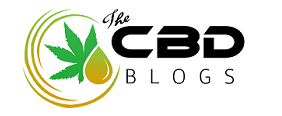The Legal Status of Delta-8 THC
What is Delta-8 THC?
Delta-8 THC is an isomer of the cannabinoid THC that is found in cannabis and other hemp extracts in a significantly low concentration (usually less than 0.1%). It occurs naturally as a result of the oxidation of the cannabinoids THC and THCa. Biologically similar to its more popular cousin delta-9 THC, this cannabinoid was relatively unknown until recently. In recent months in the United States, some hemp merchants began marketing it as a legal alternative to delta-9 THC, which is illegal at the federal level, and remains illegal in most states that do not permit recreational cannabis or have a medical marijuana program.
Just like Delta-9 THC, Delta-8 THC is also psychoactive but in a less intense manner. While their molecular chains both contain a double bond, the location of the bond is what makes the difference. The bond of Delta-8 THC is located on the 8th carbon chain while that of Delta-9 THC is located on the 9th carbon chain. This may seem like just a “slight” difference but how these molecules bind with endocannabinoid receptors in the body is one primary thing that establishes their differences.
Exploring the benefits of Delta-8 THC, some chemists are beginning to understand how it binds not only to the THC receptors of the human endocannabinoid system, but also bonds to the CBD receptors as well. While there remains much research to be done regarding Delta-8 benefits, safety, and potential side effects, some users are reporting success using it as an “alternative” to delta-9 THC and recreational cannabis. Early reports indicate that this particular isomer seems to have some of the effects of both d-9 tetrahydrocannabinol, and cannabidiol (CBD).
It has proven to be anti-emetic (that is, having anti-nausea and ant-vomiting properties). A 1995 study demonstrated the anti-emetic properties of Delta-8 THC after it was used on some cancer patients within 2 years.Furthermore, it is also an appetite stimulant. Research showed an increase in food intake of mice when administered Delta-8 THC in low doses for 50 days.
Worth mentioning also are its alleged anti-anxiety and psychoactive effects. Most consumers reported having experienced a calm, motivated, happy, and high feeling after its consumption.
Its anti-inflammatory and analgesic effects can also not be overlooked. A small 2018 study showed that the topical application of Delta-8 THC aided in the reduction of pain and inflammation in certain patients.Side effects remain to be seen, and no delta-8 product or use has been approved by the Food and Drug Administration, and no New Dietary Ingredient application for a delta-8 product has been filed.
Is it legal?
The legality of Delta-8 THC varies in different states but federally, it is considered legal only on the (first) condition that it is extracted from hemp plants with less than 0.3% of Delta-9 THC. So, its legality under the 2018 Agriculture Improvement Act stemmed solely from the source hemp it came from, and was based on Delta-9 THC content (required to be less than 0.3% by weight) at that stage.
Also, the DEA issued out a final rule which was published on the 21st of August, 2020 saying “All synthetically derived tetrahydrocannabinol remains a schedule I controlled substances.” Until changes are made to this rule, Delta-8 THC may likely be considered still legal only if extracted naturally from compliant (i.e. <0.3% THC) industrial hemp plants, AND if it has not undergone any chemical change to make it more potent, which puts it at risk of falling outside the protections of the industrial hemp provisions of the federal 2018 Agriculture Improvement Act. If the DEA interprets delta-8 as not being a naturally-occurring hemp extract, then any seller or possessor of delta-8 is at risk of prosecution under their drug enforcement authority. Since delta-8 occurs in such tiny quantities naturally in hemp, likely all processors and sellers of the cannabinoid have utilized chemical processes to concentrate delta-8. These processes could likely be viewed by the DEA as creating a “synthetically derived tetrahydrocannabinol”, so users should tread very carefully until more legal clarification is given by the federal government, the court system, or the DEA and FDA.
